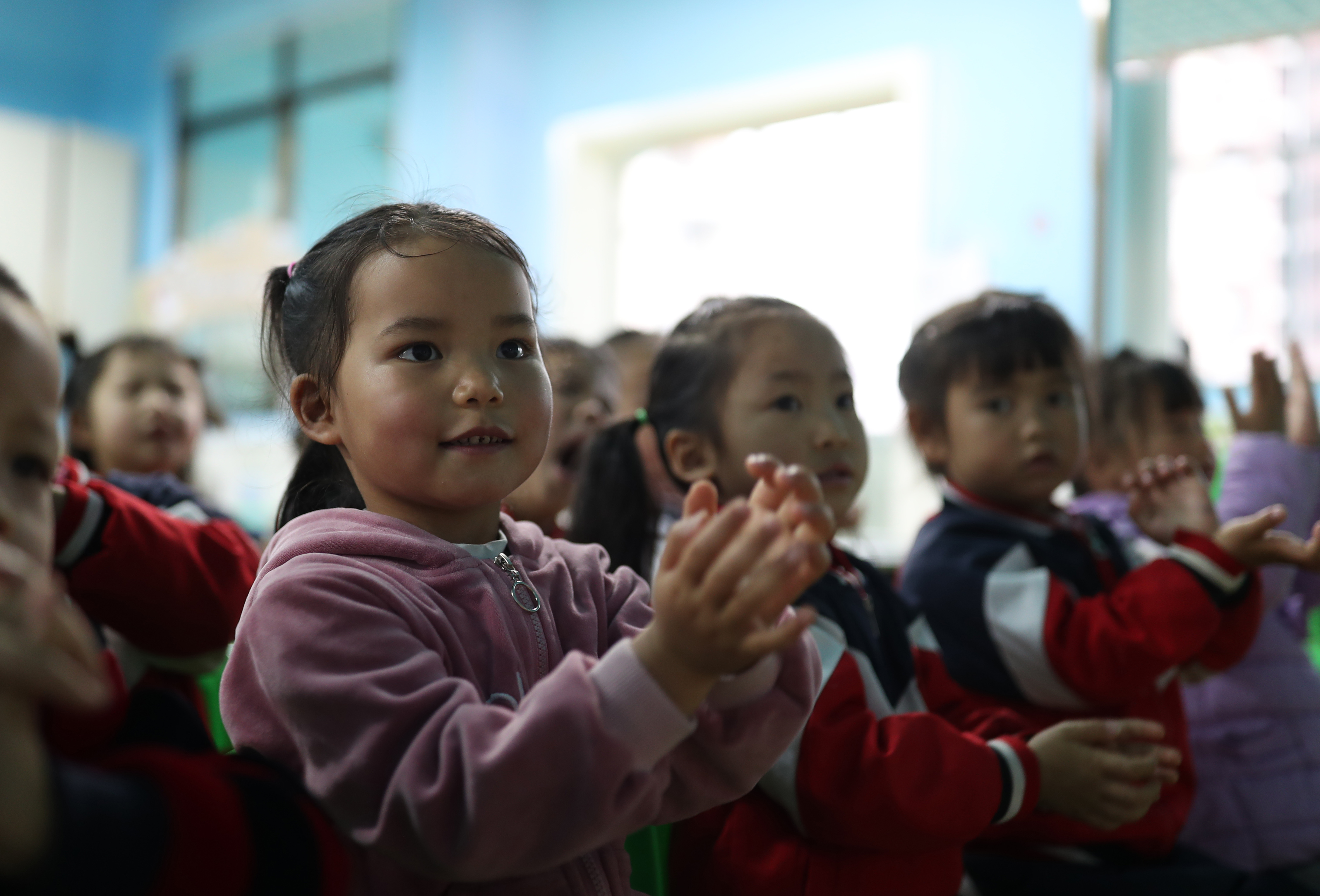
On April 10th, Zhang Shihan (first from the left) studied in Pingxi No. 2 Kindergarten in Yuping Dong Autonomous County, Guizhou Province. She immigrated from Chai Chong Village, Zhujiachang Town to Kanghua Immigration New District, 17 kilometers away from her hometown. (Photo: cpanet.cn)
Alleviating poverty through relocation has been a "key drive" in China's poverty reduction endeavor in the past few years.
As of February 10, Guizhou, a pioneer province of the poverty relief relocation policy, has relocated 1.32 million people living in remote and poverty-stricken areas. These people not only move into new residences, but also get follow-up support, like better health care service, education, and job opportunities.
In some counties of Guizhou province, measures have been taken to help relocated people quickly adapt to local life, find jobs and increase their sense of happiness.
In Bozhou district, Zunyi, the government offers people land for vegetable growing with the average of 0.3 mu to 0.5 mu per household. The land can be utilized free of charge for first three years, and then the relocated people can freely choose whether to rent it.
The vegetable garden project, by which the government allocates land to relocated people, is an attempt to help the poor get accustomed to urban life.
Wang Xiali, deputy head of Bozhou District, said farmers still feel uncomfortable living without farming. “The vegetable garden project saves people’s cost of living, and it relieves their homesickness and nostalgia.”
Xingyi City has made all-out efforts to attract investment for more job opportunities and guarantee the smooth circulation of recruitment information. In the service center of Nanxing Community, people can easily get access to monthly-updated recruitment information for vacant jobs.
Li Meizhen, who moved to Sajin residential area in 2017, established the Women’s Professional Embroidery Cooperative in Xingyi with government support. The government provided her with a rent-free 300-square-meter shop front for three years. It has offered jobs for more than 40 poor women since it was put into operation in 2018.
Kaili, another city in Guizhou, tries to construct a visible 24-hour protection network to enhance people’s sense of security and happiness. Communities are equipped with smart devices like face recognition systems and intelligent entrance guard systems, which are all connected to the big data platform of the public security.
A random survey conducted in households of Guizhou showed that 99.46% of relocated people were satisfied with the relocation policy, followed by 99.03% with infrastructure and public service facilities. People’s satisfaction with housing and employment measures reached 98.28% and 97.95%, respectively.
The Guizhou provincial government plans to build comprehensive systems to provide people with basic public services, training and employment services, cultural service and community governance.
The remaining 560,000 people will be relocated in the first half of this year in Guizhou.


